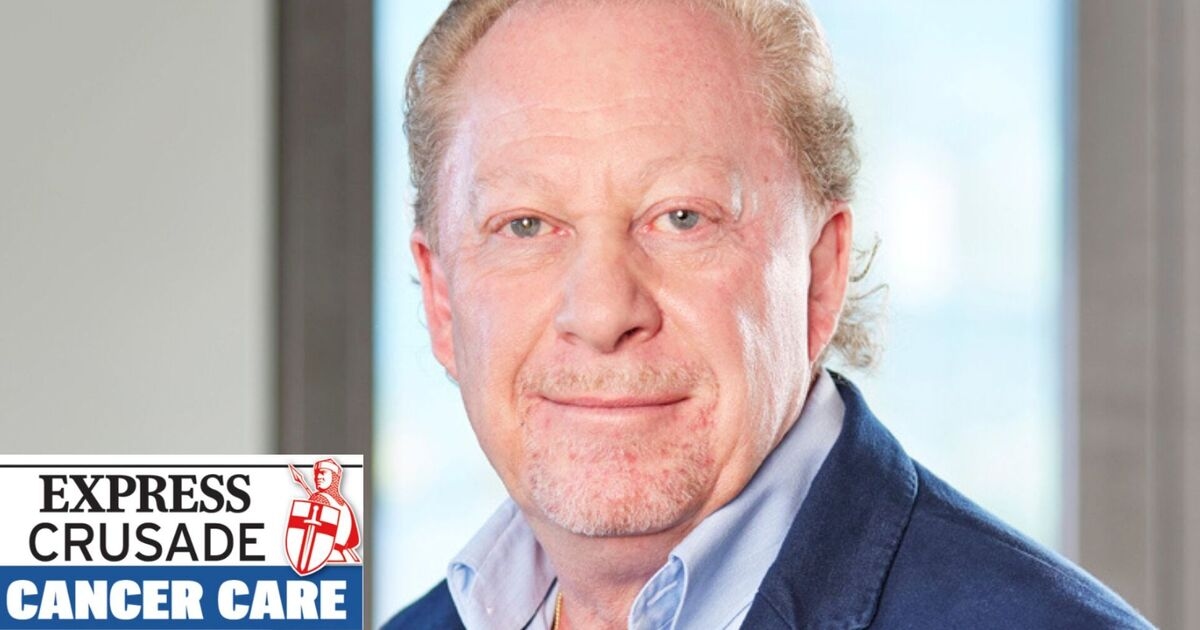Why patients of fast-growing cancer in UK say 'after' is worse than treatment


We all know the NHS is under pressure. But what’s less understood is how that affects cancer care – and the people living with and beyond it. Head and neck cancer is one of the fastest-growing yet least-recognised cancers in the UK. It affects how we speak, eat, breathe, look and live – but it rarely makes headlines. More than 17,000 people are diagnosed every year with mouth, throat, sinus, thyroid and salivary gland cancers. Only one in three are caught early, often because symptoms go unrecognised until it’s too late.
Alarmingly for men, it’s now among the top five most common cancers. Treatment is complex, invasive and often life changing. A large share of cases are diagnosed late, waiting times are long with around half of patients failing to meet the 62-day standard. Recurrence rates are high and recovery can take years. Survival is, of course, the immediate goal – but once treatment ends, many patients are left facing the physical, emotional and psychological fallout alone.
As a charity, we hear time and again that “the after is harder than the treatment itself”. Patients tell us the support they received during care disappears almost overnight once the hospital visits stop.
Suddenly, they’re left to process the trauma of everything they’ve been through – often with permanent scarring, pain or changes to how they look and sound. Imagine trying to eat, speak or smile when your jaw, tongue or throat has been reconstructed.
The physical challenges are immense – but so too is the emotional toll of losing part of who you once were. Many people struggle to recognise themselves in the mirror. Relationships, confidence and livelihoods are affected.
Yet despite the clear link between cancer and mental health, support after treatment is inconsistent, and psychological care is often seen as an optional extra rather than embedded in pathways. We must recognise that support isn’t one-size-fits-all. For some, counselling or therapy is vital.
For others, it’s about reassurance and connection – knowing they’re not alone, that their feelings are valid and that life can still be rebuilt.
Charities like Oracle Head & Neck Cancer UK are expected to fill these gaps, but we’re navigating a cancer crisis, a care crisis and a funding crisis all at once. Despite that, we’re doing everything we can.
We’re a leading national charity dedicated to all head and neck cancers, working for patients, families and the healthcare professionals who support them. We’ve built a growing online resource hub – including What to Expect guides and patient-led stories – to help others feel less isolated.
Through our Oracle Voices programme, we’ve created a national advisory group of patients and carers who shape our work and ensure their lived experience drives our priorities.
We also fund scientific and behavioural research, support healthcare professionals through conferences and education, and co-chair the UK Head and Neck Cancer Coalition – bringing charities, clinicians and patient advocates together for the first time.
But we can’t do it alone.
Psychological support must be embedded from the moment of diagnosis and continue long after treatment ends. And we must also support the clinicians delivering that care – they, too, are under extreme strain.
We need a system that sees the whole person – not just the tumour. That means understanding survival is only the first step, and that living well afterwards must be the goal.
At Oracle, we stand alongside patients, carers and professionals – but with proper investment and partnership, we could reach so many more.
That’s why we fully support the Daily Express Cancer Care campaign calling for mental health support for every cancer patient, both during and after treatment. Because cancer doesn’t just change your body – it changes your life.
Gareth Thomas is the interim chief executive of Oracle Head & Neck Cancer UK
express.co.uk





